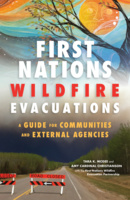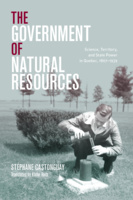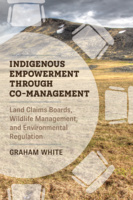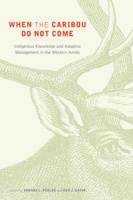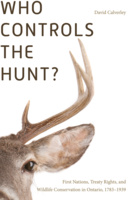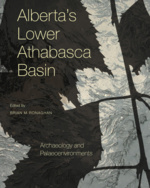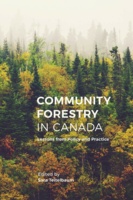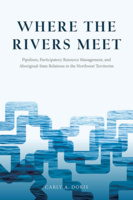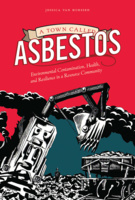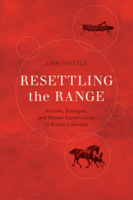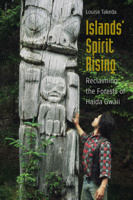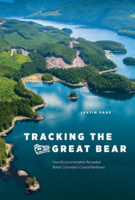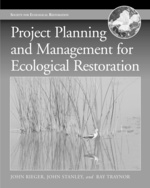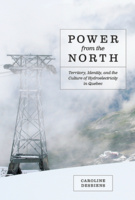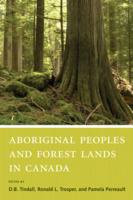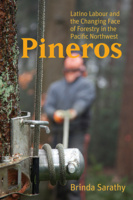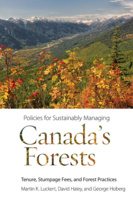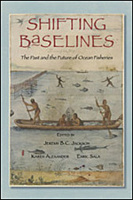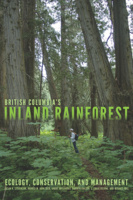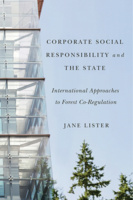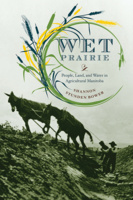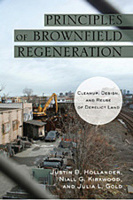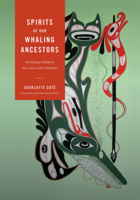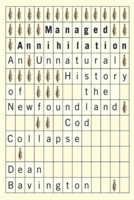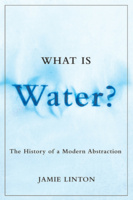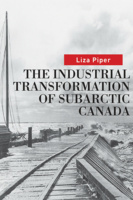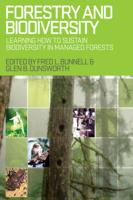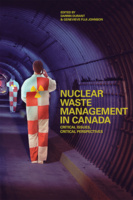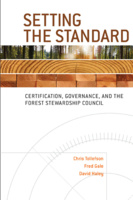Sea Change
Charting a Sustainable Future for Oceans in Canada
Sea Change takes stock of what we know about Canada’s changing oceans, offering a wealth of practical information to support the task of building resilient, sustainable oceans and ocean communities.
Against the Tides
Reshaping Landscape and Community in Canada’s Maritime Marshlands
Against the Tides tells the compelling story of the rehabilitation of the Maritime marshlands, a project that reshaped not only the landscape of the Bay of Fundy region but the communities that depended on it.
First Nations Wildfire Evacuations
A Guide for Communities and External Agencies
Based on the experiences of evacuees from seven First Nations communities, this book offers guidance to Indigenous communities and external agencies on how to successfully plan for and carry out wildfire evacuations.
The Government of Natural Resources
Science, Territory, and State Power in Quebec, 1867–1939
The Government of Natural Resources is a revealing look at how science can extend state power through territorial and environmental transformations.
Regime of Obstruction
How Corporate Power Blocks Energy Democracy
Rapidly rising carbon emissions from the intense development of Western Canada's fossil fuels continue to aggravate the global climate emergency and destabilize democratic structures. This book provides essential context to the climate crisis and will transform discussions of energy democracy.
Indigenous Empowerment through Co-management
Land Claims Boards, Wildlife Management, and Environmental Regulation
This book is a clear, compelling, and evidence-based assessment of the effectiveness of co-management boards in providing Indigenous peoples with genuine influence over land and wildlife decisions affecting their traditional territories.
The Political Economy of Resource Regulation
An International and Comparative History, 1850-2015
This is the first global survey of how natural resources have been regulated in the modern world.
Levelling the Lake
Transboundary Resource Management in the Lake of the Woods Watershed
It’s one thing to live in a watershed. We all do. It’s another to manage one, as Levelling the Lake compellingly demonstrates.
When the Caribou Do Not Come
Indigenous Knowledge and Adaptive Management in the Western Arctic
When the Caribou Do Not Come highlights the knowledge and perspectives of northern Canadian communities that have been dealing with caribou population fluctuations for generations.
Who Controls the Hunt?
First Nations, Treaty Rights, and Wildlife Conservation in Ontario, 1783-1939
Tracing the connections between colonialism and the early conservation movement in Ontario, Who Controls the Hunt? examines the contentious issue of treaty hunting rights and the impact of conservation laws on First Nations.
Alberta's Lower Athabasca Basin
Archaeology and Palaeoenvironments
Contributors discuss and explore the unique record of prehistoric landscape use revealed by development in the lower Athabasca Basin.
Unbuilt Environments
Tracing Postwar Development in Northwest British Columbia
This book looks at the long-term social and environmental effects of imagined, abandoned, and failed resource-development schemes in northwest British Columbia.
Striving for Environmental Sustainability in a Complex World
Canadian Experiences
In the face of growing anxiety about the environmental sustainability of the world, George Francis, a leading authority in the field of sustainability studies, examines initiatives undertaken in Canada over the past twenty-five years to protect some of our unique environments.
Community Forestry in Canada
Lessons from Policy and Practice
The first comprehensive look at community forestry initiatives across Canada, this book provides a rich and detailed portrait of the sector from Newfoundland to British Columbia.
Where the Rivers Meet
Pipelines, Participatory Resource Management, and Aboriginal-State Relations in the Northwest Territories
An examination of Sahtu Dene participation in the assessment of the Mackenzie Gas pipeline and other resource extraction projects, this book provides an in-depth account of the workings and effects of participatory environmental assessment in the Canadian North and its implications for the legitimization of resource co-management.
Leaky Governance
Alternative Service Delivery and the Myth of Water Utility Independence
Municipalities face important water supply challenges. One response has been to render utilities independent from municipal government through alternative service delivery. Both water management and municipal governance must be strengthened to meet contemporary water supply needs.
A Town Called Asbestos
Environmental Contamination, Health, and Resilience in a Resource Community
In A Town Called Asbestos, a mining town’s proud and painful history is unearthed to reveal the challenges a small resource community faced in a globalized world.
Resource Communities in a Globalizing Region
Development, Agency, and Contestation in Northern British Columbia
This book explores how the peoples and communities of northern British Columbia are responding to global demand for local resources.
Resettling the Range
Animals, Ecologies, and Human Communities in British Columbia
This unconventional history looks at the resettlement of interior British Columbia from the perspective of campaigns to exterminate grasshoppers and wild horses, creatures considered by some to be pests.
Islands' Spirit Rising
Reclaiming the Forests of Haida Gwaii
Set within the context of resource conflict and collaborative land-use planning on Haida Gwaii, this book examines how historic relations of domination and oppression can be transformed and more sustainable forms of land governance created.
Forests in Our Changing World
New Principles for Conservation and Management
Tracking the Great Bear
How Environmentalists Recreated British Columbia’s Coastal Rainforest
A detailed account of the complex and contested process that resulted in the establishment of the Great Bear Rainforest in coastal British Columbia.
Power from the North
Territory, Identity, and the Culture of Hydroelectricity in Quebec
This book explores how French Canada’s aspirations migrated north with natural resource development, creating a culture of hydroelectricity that continues to shape territorial planning and relations with Aboriginal peoples in the province.
Aluminum Ore
The Political Economy of the Global Bauxite Industry
An exploration of one little-known mineral, and the social, political, and economic forces that shaped both its history and the twentieth century.
Indigenous Encounters with Neoliberalism
Place, Women, and the Environment in Canada and Mexico
A cross-comparison of gender and indigeneity in the neoliberal contexts of Canada and Mexico.
Aboriginal Peoples and Forest Lands in Canada
Aboriginal Peoples and Forest Lands in Canada explores the historical, political, cultural, legal, and ethical issues surrounding forest resource use and discusses opportunities for collaboration between Aboriginals and non-Aboriginals.
The Kingdom of Rarities
An original and important investigation of rarity and its relationship to conservation.
Investing in Place
Economic Renewal in Northern British Columbia
A compelling exploration of place-based development as a timely, pragmatic approach to renewing rural and small-town economies in northern British Columbia.
Resilience Practice
Building Capacity to Absorb Disturbance and Maintain Function
In this follow-up to Resilience Thinking, Brian Walker and David Salt explore how systems can be managed to promote and sustain resilience.
The Nature of Borders
Salmon, Boundaries, and Bandits on the Salish Sea
This transnational view provides an understanding of the modern Pacific salmon crisis and reorients borderlands studies towards the Canada-US border while providing a new view of how Native Borders worked.
Policies for Sustainably Managing Canada’s Forests
Tenure, Stumpage Fees, and Forest Practices
This book compares provincial forest policies on public land across Canada, and considers how they may hinder or enhance the pursuit of sustainable forest management objectives.
Chasing Molecules
Poisonous Products, Human Health, and the Promise of Green Chemistry
Chasing Molecules explores the development of green chemistry as an alternative to the dangerous synthetic chemicals found in countless consumer products.
British Columbia’s Inland Rainforest
Ecology, Conservation, and Management
This book brings together information from a wide range of sources about the ecology, management, and conservation of British Columbia’s inland rainforest.
Corporate Social Responsibility and the State
International Approaches to Forest Co-Regulation
This book provides a clear theoretical lens and practical guidance on the prospects and limits of leveraging private corporate social responsibility standards, such as forest certification, alongside government regulatory efforts to achieve more effective and adaptive sustainability solutions.
Wet Prairie
People, Land, and Water in Agricultural Manitoba
This in-depth exploration of surface water management in southern Manitoba reveals how coping with environmental realities has altered both residents’ relations with each other and their ideas about the role of the state.
Urbanism in the Age of Climate Change
This provocative and engaging work emerges from Calthorpe’s belief that, just as the last fifty years produced massive changes in our culture, economy and environment, the next fifty will generate changes of an even more profound nature.
Principles of Brownfield Regeneration
Cleanup, Design, and Reuse of Derelict Land
The first book to provide an accessible introduction to the design, policy, and technical issues related to redevelopment of "brownfields" – idle property whose development or improvement is impaired by contamination.
Spirits of Our Whaling Ancestors
Revitalizing Makah and Nuu-chah-nulth Traditions
Following the revival of the gray whale hunt by the Makah and Nuu-chah-nulth tribes in the Pacific Northwest, this books looks at the significance of whaling to these societies, exploring environmentalism, animal rights, and what it means to be “Indian.”
Managed Annihilation
An Unnatural History of the Newfoundland Cod Collapse
By examining one of the largest natural resource management failures of the twentieth century – the collapse of the Newfoundland cod fishery – this book seeks to understand the history of, and possible alternatives to, managerial responses to environmental issues.
The Aquaculture Controversy in Canada
Activism, Policy, and Contested Science
A comprehensive examination of the aquaculture controversy in Canada.
What Is Water?
The History of a Modern Abstraction
A history of the modern concept of water that traces how a scientific abstraction has helped to produce a global crisis.
The Industrial Transformation of Subarctic Canada
A revealing history of human impact in the Canadian North, this book focuses on the causes and consequences of the industries that replaced the fur trade.
Forestry and Biodiversity
Learning How to Sustain Biodiversity in Managed Forests
Sustaining biodiversity in managed forests is a complex problem, but the authors argue that it can be done -- through adaptive management, which they describe as a structured approach to “learning by doing.”
Nuclear Waste Management in Canada
Critical Issues, Critical Perspectives
Nuclear Waste Management in Canada encourages critical thought and discussion about energy generation and waste management by exploring not only the technical but also the social and ethical aspects of the problem.
Setting the Standard
Certification, Governance, and the Forest Stewardship Council
This important work undertakes a detailed comparative analysis of Forest Stewradship Council environmental standards, and their implications for global governance and regulatory theory.
Farming in a Changing Climate
Agricultural Adaptation in Canada
Covering all agricultural regions and a wide variety of commodity production and farming systems, this comprehensive survey synthesizes twenty years of research on climate change and Canadian agriculture.



